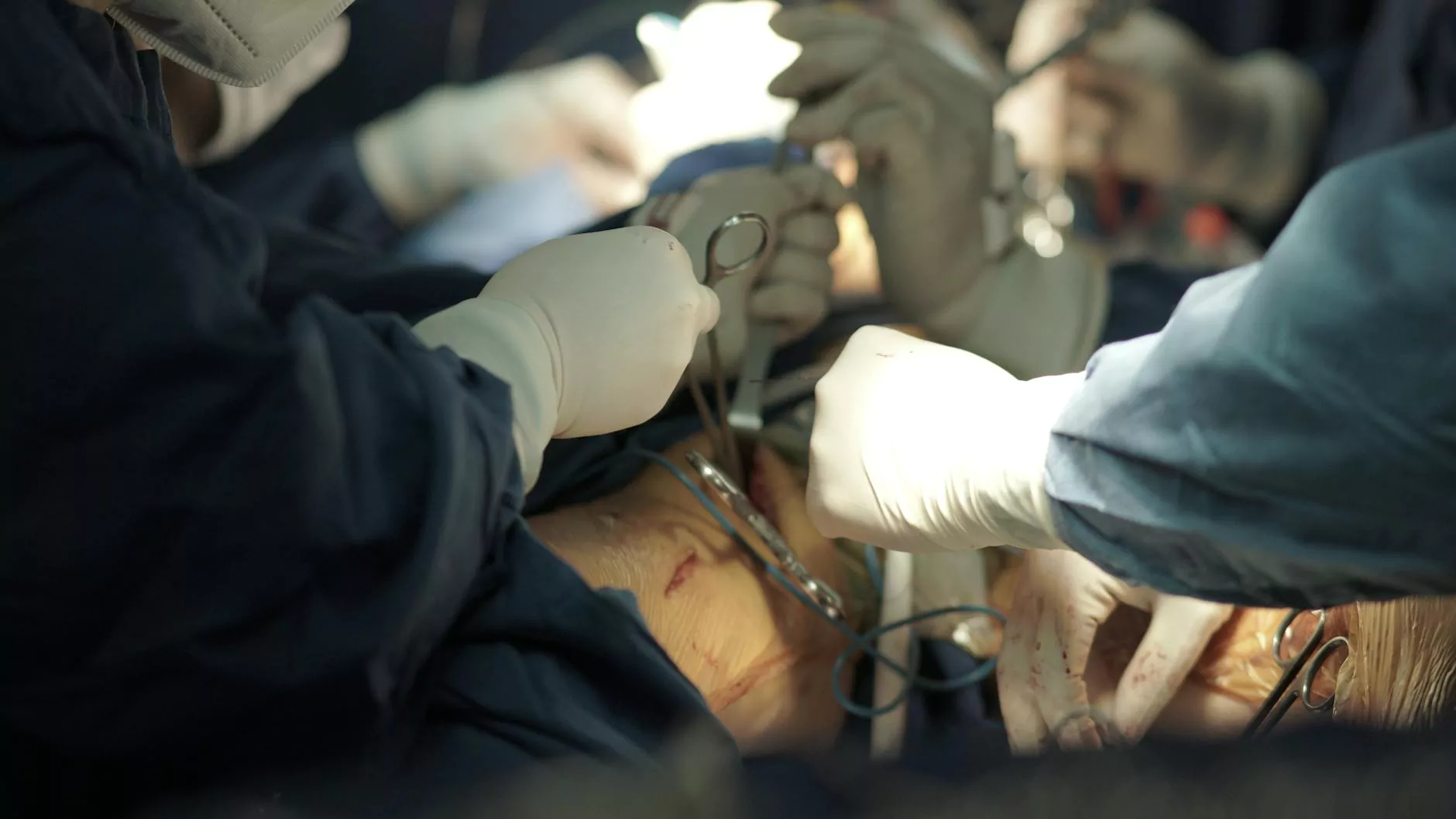Understanding the Role of Thoracic Surgeons in Health and Medicine

In the intricate world of healthcare, thoracic surgeons hold a significant position, offering expert solutions to complex medical issues related to the thoracic cavity. This article delves into the realm of thoracic surgery, highlighting the responsibilities, skills, and the critical impact these surgeons have on the health and wellness of patients.
What is a Thoracic Surgeon?
A thoracic surgeon is a specialized medical practitioner focusing on diseases and conditions affecting the chest, including the lungs, heart, esophagus, and other vital structures. With a robust educational background, these surgeons typically complete extensive training, including:
- Medical school (4 years)
- General surgery residency (5 years)
- Cardiothoracic surgery fellowship (2-3 years)
This rigorous training equips them with the knowledge and skills to perform intricate surgeries, navigate complex medical issues, and administer appropriate preoperative and postoperative care.
The Importance of Thoracic Surgery
Thoracic surgery is essential in treating various conditions that significantly affect a patient's quality of life. Here are some key areas where thoracic surgeons play a crucial role:
1. Lung Disorders
One of the primary areas of focus for thoracic surgeons is lung disorders. Conditions such as lung cancer, chronic obstructive pulmonary disease (COPD), and pulmonary infections may necessitate surgical intervention. Common procedures include:
- Lobectomy - Removal of a lobe of the lung.
- Pneumonectomy - Complete removal of a lung.
- Video-assisted thoracoscopic surgery (VATS) - A minimally invasive approach for various lung and pleural conditions.
2. Esophageal Conditions
Thoracic surgeons also address complications related to the esophagus, including:
- Esophageal cancer - Often requiring resection and reconstruction.
- Achalasia - A condition affecting swallowing that may require surgical intervention.
3. Cardiac Surgery
In many cases, thoracic surgeons are involved in cardiac surgeries, collaborating closely with cardiologists. Some common procedures include:
- Coronary artery bypass grafting (CABG) - Restoring blood flow to the heart.
- Valve repair or replacement - Addressing valvular heart diseases.
4. Thoracic Trauma
Accidents and injuries can lead to life-threatening conditions that necessitate immediate surgical intervention. Thoracic surgeons are trained to handle trauma cases effectively, ensuring the best outcomes for patients.
Collaborative Care: The Role of Thoracic Surgeons
Effective patient care involves collaboration among various healthcare professionals. A thoracic surgeon typically works with:
- Primary care physicians - For initial diagnosis and management.
- Oncologists - For comprehensive cancer care, including surgery as part of a larger treatment plan.
- Physical therapists - To aid recovery post-surgery and restore functionality.
Sports Medicine and the Role of Thoracic Surgeons
In the realm of sports medicine, thoracic surgeons can be pivotal, especially when athletes encounter chest-related injuries. Conditions such as rib fractures, pneumothorax (collapsed lung), or even muscle tears within the thoracic region can affect an athlete's performance significantly.
Addressing Sports-Related Injuries
For athletes, thoracic surgeons can facilitate rapid recovery through surgical interventions that might include:
- Rib fixation - Stabilizing broken ribs to promote healing.
- Pleural space management - Treating conditions like pneumothorax quickly to allow for a return to sports.
Post-Surgery Rehabilitation and Physical Therapy
After thoracic surgery, physical therapy becomes a crucial component of recovery. Physical therapists work with patients to:
- Improve lung function through breathing exercises.
- Enhance strength and mobility.
- Facilitate a safe return to sports and regular activities.
Advancements in Thoracic Surgery
The field of thoracic surgery is continually evolving. Advances in technology and surgical techniques have led to improved patient outcomes. Some notable developments include:
1. Minimally Invasive Techniques
Minimally invasive surgery uses smaller incisions and innovative tools, resulting in:
- Reduced pain and faster recovery times.
- Less scarring compared to traditional open surgery.
- Shorter hospital stays.
2. Robotic Surgery
Robotic-assisted surgery enhances precision and allows surgeons to perform complex procedures with greater control. Patients experience:
- Less trauma to surrounding tissues.
- Fewer complications and improved recovery rates.
The Path to Becoming a Thoracic Surgeon
Individuals aspiring to become a thoracic surgeon should be prepared for a lengthy but rewarding journey involving:
- Committing to rigorous academic standards.
- Participating in extensive clinical training.
- Possibly completing additional certifications in specialized surgical techniques.
Conclusion: The Impact of Thoracic Surgeons on Patient Care
In summary, the role of thoracic surgeons is vital within the healthcare framework, particularly in the fields of health and medicine, sports medicine, and physical therapy. Their expertise not only aids in treating severe medical conditions but also plays a crucial role in enhancing the quality of life for many patients.
As the medical field progresses, the contributions and methodologies of thoracic surgeons will continue to evolve, making them an indispensable part of modern medicine.
For more information about thoracic surgery and how these specialists can assist you or your loved ones, please visit HelloPhysio.









